The ‘1 Nojor’ media platform is now live in beta, inviting users to explore and provide feedback as we continue to refine the experience.
Adviser Mahfuz Alam has issued an apology via a Facebook post for using the term “Tawhidi Janata” in one of his statements. He acknowledged that his words may have caused distress to some and expressed regret for any offense taken. He also assured that he would reconsider any past statements that might have hurt people. Mahfuz emphasized the need for unity and cautioned against divisive labeling. Additionally, he highlighted that the ongoing mass uprising belongs to all, noting that people from schools, madrasas, and universities—both private and public—are recognizing a collective leadership.
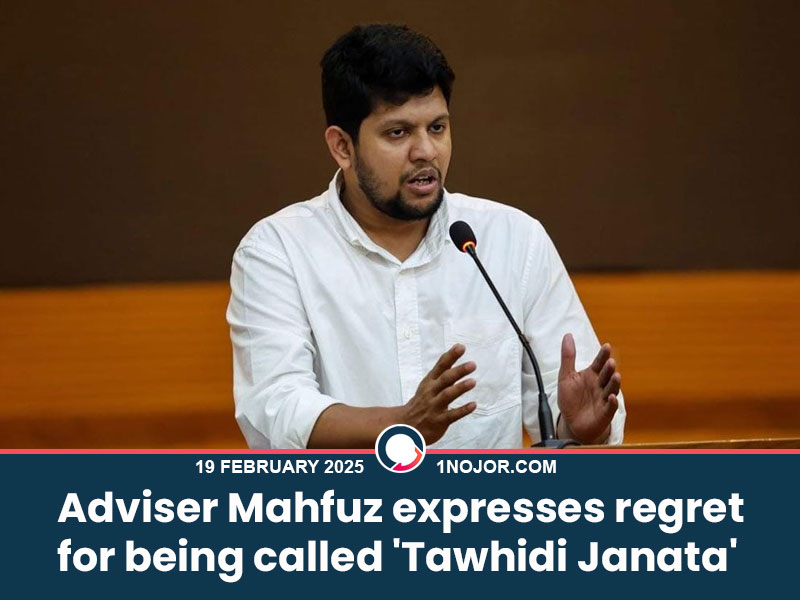
The verdict in the Niko corruption case against BNP Chairperson Khaleda Zia and seven others is scheduled for Wednesday. Dhaka’s Special Judge’s Court will announce the decision. The defense previously argued for acquittal, asserting the defendants’ innocence. The case was filed by the Anti-Corruption Commission in 2007, with charges formally submitted in 2008.
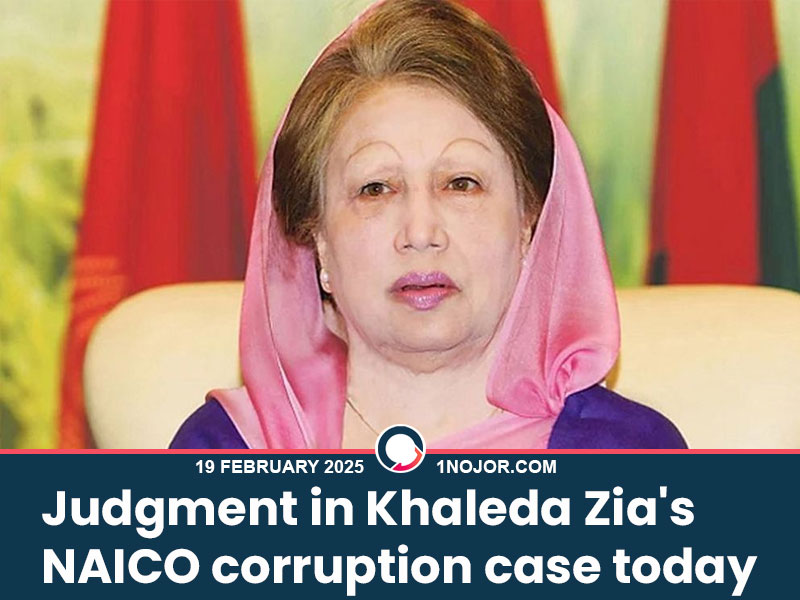
On the second day of BNP’s two-day campaign for the implementation of the Teesta Master Plan, a massive torch procession took place at the Teesta Rail Bridge in Kaunia. Led by BNP leader Shafiqul Alam Sufi, the procession followed an overnight sit-in by thousands at the Teesta banks. The event featured cultural performances showcasing regional traditions. The slogans "Save Teesta, Save Bangladesh" resonated throughout the area.

A United Nations human rights report has accused the former Awami League government of unprecedented political interference in institutions, including the judiciary, security forces, and administration. The report states that widespread corruption and extortion within law enforcement reflected the high-level corruption of the regime. During Sheikh Hasina’s 15-year rule, an estimated 74.4% of Bangladeshis fell victim to law enforcement corruption. The report also links the previous administration to misinformation campaigns, economic destruction, and large-scale money laundering.
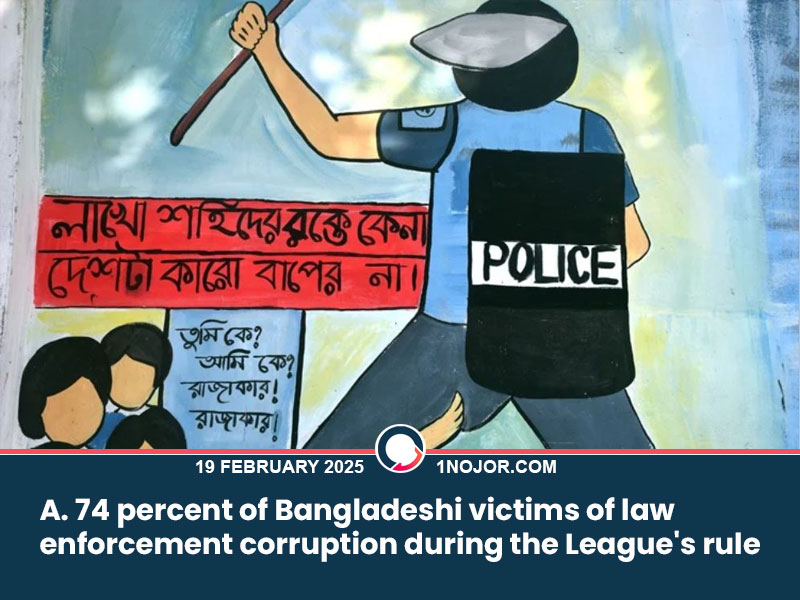
Chinese Ambassador to Bangladesh, Yao Wen, expressed China’s interest in competing in the arms market in Bangladesh during a press conference on Tuesday. He also reiterated China’s readiness to assist in the Teesta project and is awaiting a response from Bangladesh. Additionally, the ambassador raised concerns over how China’s regional position is depicted in Bangladeshi textbooks and websites, urging the country to revise its maps. China has also invited the Bangladesh Air Force to participate in an auction for decommissioned military aircraft and announced plans to streamline medical visa processing.

Azadul Islam Hai (Pannu), the BNP president of Nawabganj Upazila, has been missing for 40 days. He left his home in Nawabganj on January 8 for Rajshahi and has not returned. His family has been unable to contact him by phone. His son, Sihab Tamal, has filed a general diary (GD) with Nawabganj police. Despite efforts from law enforcement, there has been no trace of Pannu.
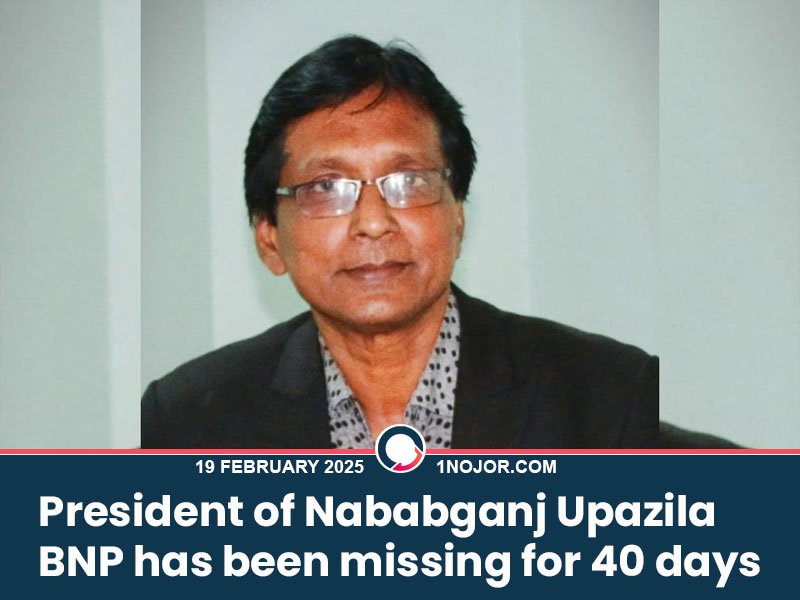
The interim government has extended the tenure of five key reform commissions—covering labor, media, health, women’s rights, and local governance—until March 31. The Cabinet Division issued a notice on Tuesday, citing the need for additional time to complete ongoing work. The commissions were initially formed on November 18, with a three-month mandate that expired yesterday.
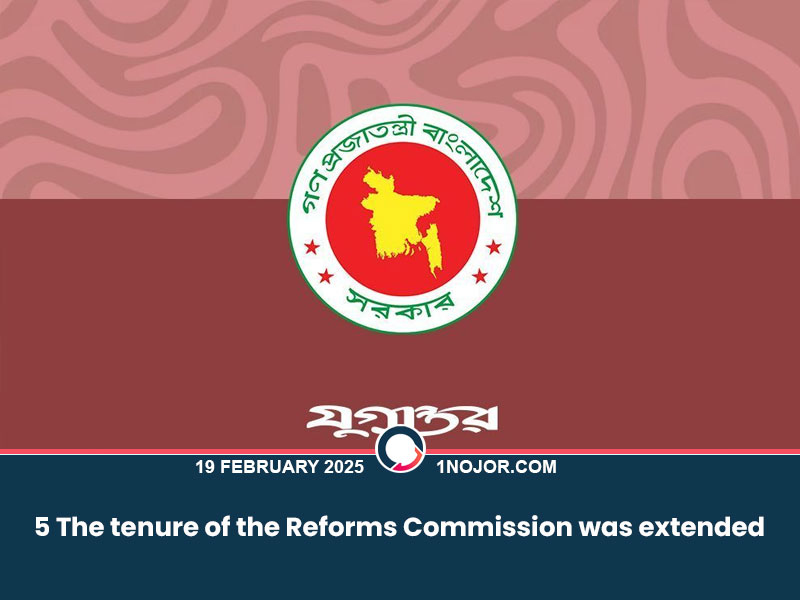
A United Nations report states that the government deployed armed paramilitary forces—including RAB, BGB, and Ansar/VDP battalions—long before the July protests escalated into violence. The report claims that the deployment aimed to suppress protests through military intervention and the use of lethal force. Between July 15 and August 5, security forces and armed Awami League supporters engaged in widespread violence, allegedly to maintain power at any cost. According to the report, Sheikh Hasina recognized the potential threat to her government early in July and took decisive measures to quash opposition through force.
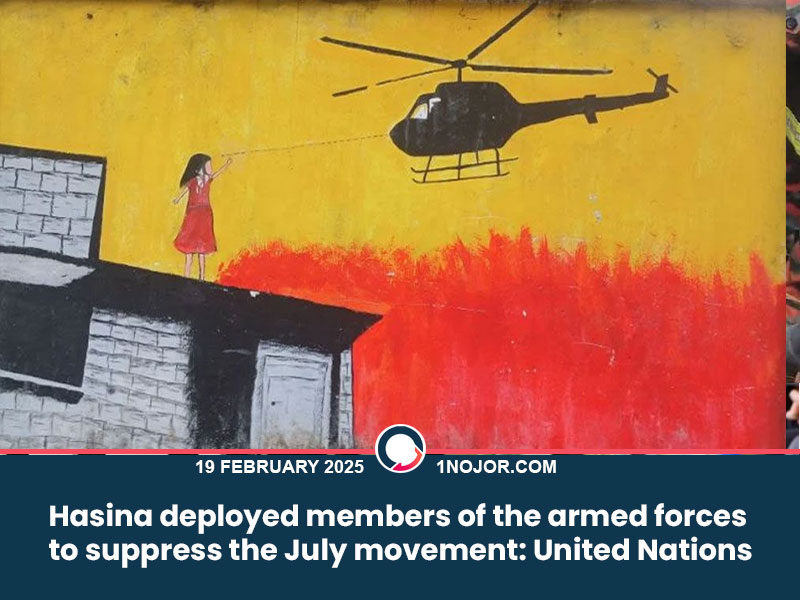
Two petrol bombs exploded in a residential garden in Uzirpur, Barishal, on Tuesday afternoon, causing widespread panic among locals. Law enforcement also recovered three unexploded cocktail bombs from the scene. Inspector Touhidul Karim of Uzirpur Police Station confirmed the discovery. In response, BNP-affiliated activists blocked the Dhaka-Barishal highway, alleging that ruling party supporters were behind the attack.

Egypt’s Foreign Ministry has announced that the special Arab League summit on the Gaza crisis, initially scheduled for next week, has been postponed to March 4. The decision was made following consultations with member states. The summit was called in response to Donald Trump’s proposal advocating for the occupation of Gaza and the displacement of its residents. Arab nations, including Egypt, Jordan, and Saudi Arabia, are expected to reinforce their cooperation and seek peaceful solutions. Analysts view the summit as a strong countermeasure against U.S. plans.

The Sylheti Panchayet, a political organization advocating for the rights of Sylhet Division, has submitted a memorandum to the Chief Adviser demanding the recognition of Sylheti as Bangladesh’s second official language. The memorandum states that Sylheti is the only language in Bangladesh, apart from Bengali, that has its own distinct script. With over 12 million Sylheti speakers in Bangladesh and another 15 million worldwide, the group argues that the language deserves formal recognition. The memorandum also references its recognition as the world’s 97th language and calls for its inclusion in primary school curricula.

Following the DC Conference, Special Assistant to the Chief Adviser, General (Retd.) Abdul Hafiz, revealed that 1,400 weapons looted during the August 5 unrest have yet to be recovered, along with approximately 250,000 rounds of ammunition. Nearly 6,000 weapons were stolen during that period, and efforts are ongoing to locate them. The nationwide joint force operation will continue until the weapons are retrieved. Despite significant progress, authorities remain vigilant. Hafiz also instructed district commissioners to remain proactive in ensuring stable agricultural supply, price regulation, smooth irrigation, and national security.
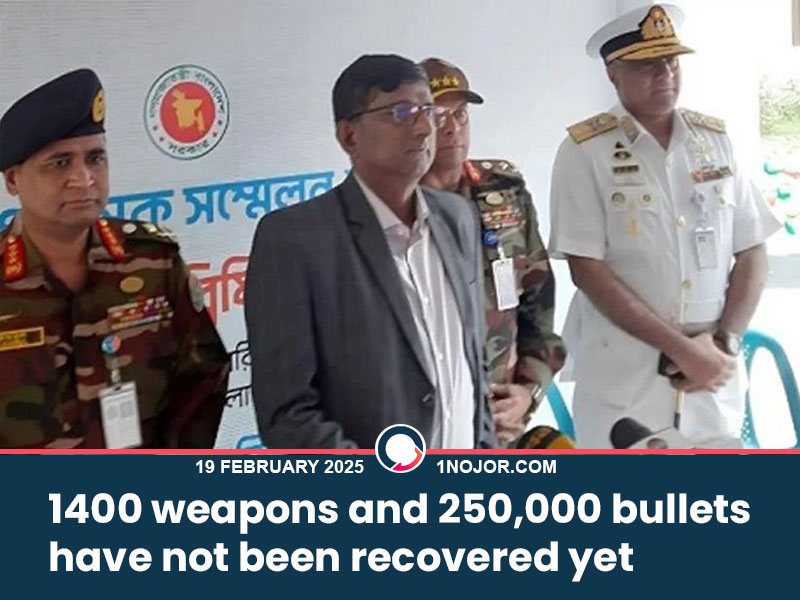
To ensure food security and sustainability, the government is placing special emphasis on increasing agricultural production, according to Press Secretary Shafiqul Alam. He stated that the Chief Adviser has repeatedly instructed stakeholders to take necessary initiatives to boost agricultural productivity despite limited land resources. The government is also focusing on modern agricultural technology and proper utilization of resources to enhance food production. Addressing concerns about global trade conflicts, he emphasized the importance of self-sufficiency, stating that countries producing more food will be better positioned in the future. He also underscored the need for proactive measures to prevent a recurrence of crises like the 1974 famine.

A faction of the Anti-Discrimination Student Movement staged a road blockade in Lalkhan, Chattogram, demanding the cancellation of three unit committees. The protest led to severe traffic congestion. In a press conference, 50 members announced their resignation, alleging that the newly announced committee included businesspersons, individuals accused of harassment, and members of teenage gangs. They have put forward a three-point demand, including the cancellation of the committee, and have declared Hasnat Abdullah and Arif Sohel as unwelcome figures until their demands are met. Protesters claim that those who gave fiery speeches after August 5 were awarded key positions while female activists were sidelined. They demand an investigation and punishment for those involved in the selection process.

Religious Affairs Adviser Khalid Hossain has announced that the government is considering implementing a salary structure for Imams and Muezzins of government, autonomous, semi-autonomous, and Waqf-controlled mosques. Speaking after the DC Conference, he revealed that work has begun on the "Mosque Management Policy 2025." He also noted that many temple properties have been illegally occupied, and efforts are underway to recover them. District administrators have been instructed to take action. Additionally, the government has completed the construction of 300 model mosques, with plans to build 214 more.
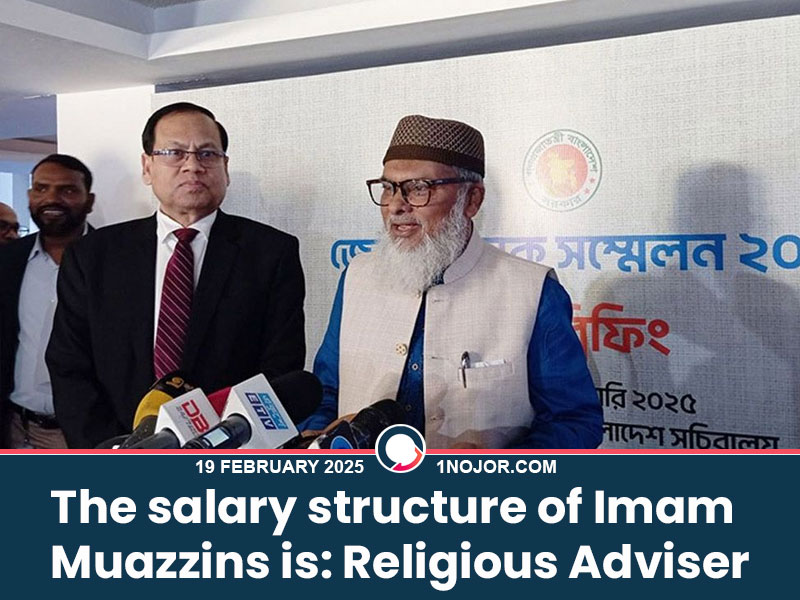
The ‘1 Nojor’ media platform is now live in beta, inviting users to explore and provide feedback as we continue to refine the experience.